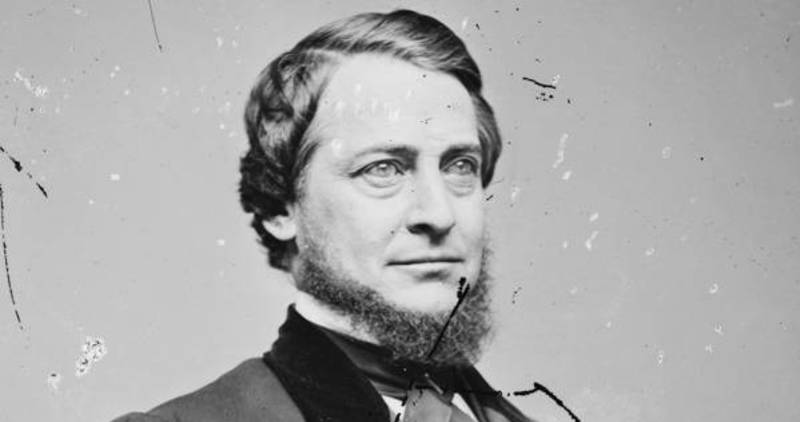Clement Laird Vallandigham was an Ohio politician and leader of the Copperhead faction of anti-war Democrats during the American Civil War. He served two terms in the United States House of Representatives. In 1863, he was convicted at an Army court martial of opposing the war, and exiled to the Confederacy. Take a look below for 31 more strange and weird facts about Clement Vallandigham.
1. He ran for governor of Ohio in 1863 from exile in Canada, but was defeated.
2. Vallandigham was born July 29, 1820, in New Lisbon, Ohio, to Clement and Rebecca Laird Vallandigham.
3. His father, a Presbyterian minister, educated his son at home.
4. In 1841, Vallandigham had a dispute with the college president at Jefferson College in Canonsburg, Pennsylvania.
5. He was honorably dismissed, but he never received a degree.
6. Edwin M. Stanton, the future Secretary of War under President Lincoln, was Vallandigham’s close friend before the Civil War.
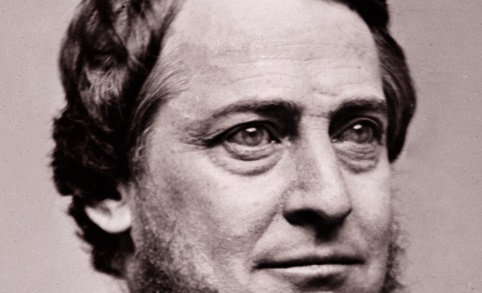
7. Stanton lent Vallandigham $500 for a law course and to begin his own practice.
8. Both Vallandigham and Stanton were Democrats, but they held opposing views on slavery.
9. Stanton was an abolitionist and Vallandigham was an anti-abolitionist.
10. Vallandigham voted against the revoking of “Black Laws,” which promised equality and suffrage to African-Americans.
11. In 1851, he expressed his desire to serve Ohio’s lieutenant governor, but his part members were against his nomination.
12. In 1856, Vallandigham was defeated when he ran for the Congress.
13. He was re-elected in 1858, after his appeal to the Committee of Elections.
14. He once again won in 1860, but was defeated comprehensively in 1862, when he contested for a third term.
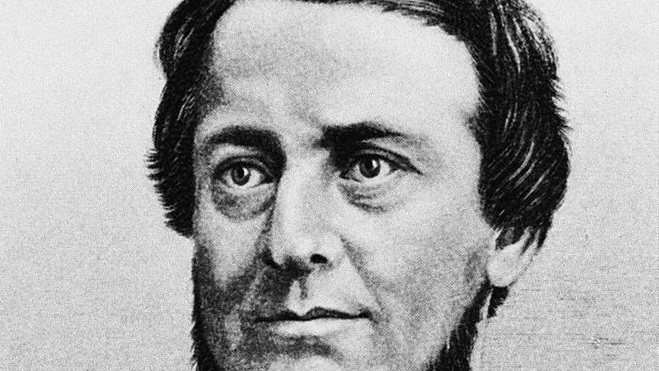
15. His loss didn’t hamper his reputation as many thought him as a strong contestant for the position of the President.
16. Vallandigham emerged as one of the most outspoken critics of Abraham Lincoln. He also opposed the Civil War and became the leader of a faction called Copperhead.
17. He then went on delivering speeches, in which he condemned Lincoln and aspects of Civil War that benefited the government despite the obvious loss.
18. Even after the issuance of General Order Number 38, which made it illegal to criticize the war within the Department of Ohio, Vallandigham delivered many speeches criticizing the war and its effects.
19. For violating General Order Number 38, Vallandigham was arrested on May 5, 1863.
20. He was confined to a military prison at Fort Warren in Massachusetts, which sparked off widespread agitation and protests.
21. On June 2, 1863, the President of the Confederate States, Jefferson Davis sent Vallandigham to Wilmington, North Carolina, where he was put under guard.
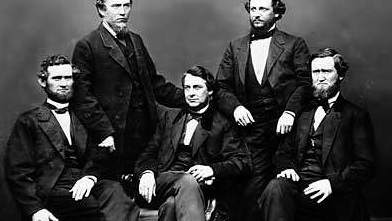
22. Vallandigham managed to leave the Confederacy and reached Canada, from where he started campaigning for the upcoming governorship race. Though he was defeated in the elections, he continued with his protests against the war.
23. On June 15, 1864, he returned to the United States and appeared publicly at a convention. He promoted peace at the convention and stated that the war was a failure.
24. Even after the war was over, Vallandigham continued his protest against the laws that promised suffrage and equality to African-Americans.
25. Vallandigham returned to Ohio in 1867. After losing his campaigns against Allen G. Thurman and Robert C. Schenck, he resumed practicing law.
26. He then started focusing on his career as a lawyer and started taking up cases.
27. Vallandigham’s deportation had inspired author Edward Everett Haleto write a short story titled “The Man Without a Country.”
28. The story was published in “The Atlantic” magazine as part of its monthly edition.
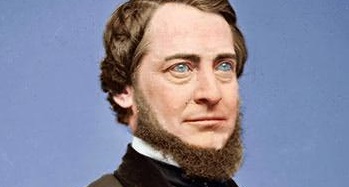
29. Vallandigham was also mentioned in a couple of other novels. In Ward Moore’s novel “Bring the Jubilee,” Vallandigham goes on to become the President of the United States.
30. Vallandigham was married to Louisa Anna, with whom he had a son named Charles Vallandigham.
31. He was a strong believer of “doctrine of predestination.” Even on his deathbed, Vallandigham had stated that everything had happened for a reason and that his act of shooting himself while explaining how another man might have shot himself to death was predestined.

